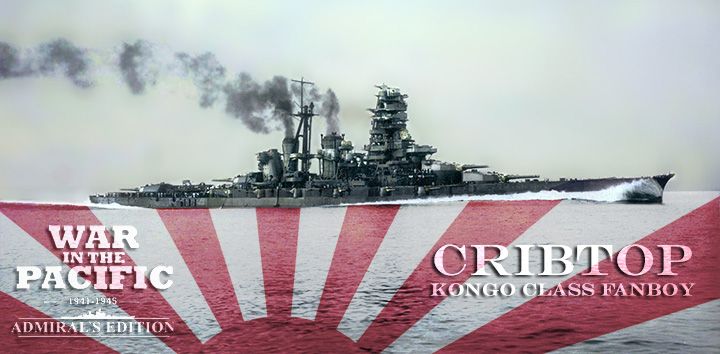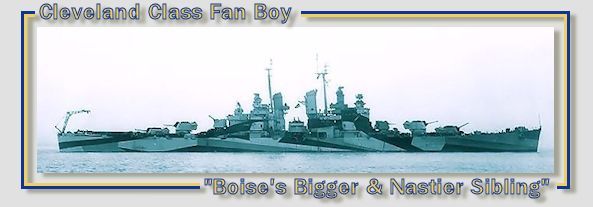Nemo121
Posts: 5821
Joined: 2/6/2004
Status: offline

|
Hmm, I think my use of culmination point accurately reflects Clausewitz's usage and intention.
I don't think Culmination Points are necessarily limited to the offensive and they certainly aren't limited just to victory. A good definition follows:
quote:
Culmination Point is the point at which a force no longer has the capability to continue its current form of operations, offensive or defensive.
A. In the offence, the point at which continuing the attack is no longer possible and the force must consider reverting to a defensive posture or attemping an operational pause.
B. In the defence, the point at which counteroffensive action is no longer possible.
So, utilising the portion of the definition in A above. Steve's culmination point happened during the Kuriles/Aleutians operation and he failed to recognise that he culminated. Since then he hasn't gained anything but lost far more than he would have had he, properly, transitioned to the defensive at that point in time.
I'd offer a counter-quote from Clausewitz to illustrate this:
quote:
The natural goal of all campaign plans therefore is the turning point at which the attach becomes defence. If one were to go beyond that point, it would not only be a useless effort which could not add to succsss. It would in fact be a damaging one...
Since the Aleutians Steve hasn't achieved anything strategically decisive but he HAS suffered excessive losses which will damage his ability to maintain a strong defence once he transitions to that stance.
quote:
This is why the great majority of generals will prefer to stop well short of their objective rather than risk approaching it too closely and why those with high courage and an enterprising spirit will often overshoot it and fail to attain their purpose. Only the man who can achieve great results with limited means [i.e., the military genius] has really hit the mark.
Desicat,
Culmination points don't equate to victory. Offensives and defensive operations reach culmination points when they are no longer tenable. The Culmination Point of Victory which Clausewitz spoke of is a possible end state of offensive action but it is only one of the possible end states. If Culmination Point of Victory could be rephrased as "The Culmination Point which occurs when an offensive succeeds and you transition to the pursuit" another possible end state is that culmination point of the offensive when your offensive clearly won't succeed and you have to transition to the defensive.
Also Clausewitz's writing assumes zero sum game theory applies to war. While, in the end, that may be true it isn't necessarily true of all operations. E.g. A force can transition from a formed defence to a guerilla type defence not because its defensive operations have culminated and they no longer have the ability to resist and, as a corollary, the offensive force has reached a culmination point where its offensive has succeeded and can transition to a pursuit. This is the zero sum outcome Clausewitz envisaged. In reality though forces can transition to other states BEFORE they reach their culmination points such that, e.g. The Taliban transitioned to very much a guerilla war as opposed to trying to take on Allied forces head-on long before they reached the culmination point of their head-on strategy. Why? They could see that culmination point coming and cut their losses before coming up with a new approach. Likewise no-one could successfully argue that Allied forces reached the culmination point of their offensive operations and achieved "victory" and forcing the Taliban to transition to a more guerilla-based engagement strategy than previously in 2003/2004.
Also Culmination points were eminently applicable to the operational level in Clausewitzes thinking so it would be natural that a long war would feature multiple culmination points. When you say:
quote:
IMHO the only thing Japan can still accomplish in the game would be to further their "High Water Mark", victory is no longer possible and a culminating point is no longer attainable.
I have to disagree strenuously. There is more than enough time for each side to achieve, pass or fail to achieve another 20 culmination points each. It isn't as though any one side only has one culmination point throughout the entire war. Only that very last offensive of the war which gains complete, strategic victory and fulfills national policy objectives has a final culmination point. I think you either misunderstand that or from what you've written it is unclear.
I'll quote from FM 100-5 here. It isn't perfect but it is a good document written by smart people in a manner designed to be easily understood - whereas Clausewitz's writings can be indecipherable unless you understand the literary context and social context within which he wrote.
quote:
Unless it is strategically decisive every offensive operation will sooner or later reach a point where the strength of the attacker no longer significantly exceeds that of the defender and beyond which continued offensive operations therefore risk overextension, counterattack and defeat. In operational theory, this point is called the culminating point. The art of attack at all levels is to achieve decisive objectives before the culminating point is reached. Conversely, the art of the defence is to hasten the culmination of the attack, recognise its advent and be prepared to go over to the offence when it arrives.
Transitioning this to the strategic level it is clear to me that by the end of the 1st week of April in-game Chez most definitely reached his culmination point ( attacking the AOs might be a bump in the road but most definitely wasn't even remotely close to a culmination point ). Canoerebel appears to have recognised this with prompting about 2 months later, CHez hasn't yet recognised it.
Obviously YMMV but the culmination point was clearly the 1st week in April with the fighting in the north of the map. You may argue it was actually mid-March when that decision was taken but I wouldn't have expected people to know that at the time. The end of the 1st week in April though was pretty clear as the culmination point. Since then Chez has achieved nothing but overextension at such cost that he is speeding his own coming defeat.
As to the Allies inevitably winning. Not necessarily so. In a long-term game ( Grand Campaign ) it should be possible for Japan to hold out with an intact perimeter and economy until the end of 1946. Unfortunately Allied players have always quit by the end of 1942 when such a stratagem was attemped. Even in 1945 though meaningful defence is possible - possible to such an extent as to inflict disproportionate losses and cause morale failure in opponents.
As to quitting now... Well, I agree winning is really an irrelevancy as far as I'm concerned. What matters is the challenge and being able to put good, skillfull plans into play. However, when an opponent will no longer provide a significant challenge it is better to accept a surrender and move onto another game. I think that Chez may well mount a solid defence but I don't think that solid defence will really challenge Canoerebel as much as he needs to be challenged to improve. IMO, right now, Canoerebel doesn't need to continue an average game vs a nice, solid player. He needs to take on someone at his own tier of the game or someone better. He can improve most, at this stage, by playing those as good or better than him. Given my view of the game my feeling is he should invest his time in what is most likely to improve his play over the decades of life he has left - and that would be taking on a game against someone really tough who will hand him some significant beatings or, at least, really challenge him even if that opponent loses.
Different strokes for different folks.
As an aside: For those looking for more reading on the issue I'd suggest:
1. Don't start with Clausewitz, it'll confuse you. He's brilliant but you need to read about his context ( social, philosophical and cultural ) for months before you can actualyl understand what he says. If you don't you'll THINK you get it and actually won't.
2. FM100-5 is good but I prefer the Marine equivalents. They're a bit more manoeuvrist and indirect while still hugely focussed by Clausewitz and the US Army philosophical precedent - Air Land Battle from the 80s - which got the idea out there but didn't really ensure small unit cohesion sufficiently for my tastes.
3. One lovely article I found online a while back is found at
Col Hall's Culminating Points PDF
He not only talks about culminating points but touches on how OODA loops and cognitive momentum play into the breach of culmination points. If there's interest that would be a pdf I'd be interested in discussing with others in one of my extant AARs. I think it is a very nice, succinct summary of the issues. There's also a very nice emphasis on the need to recognise your OPPONENT'S culmination point so you can transition onto the offensive ASAP before he recovers equilibrium. Vs Chez Canoerebel is fine because Chez keeps on not recognising he has culminated so the window of opportunity in which he continues to overbalance, overextend and fritter away forces is expanding. Against a good opponent Canoerebel's slowness in recognising the culmination point and his lack of reserves waiting to exploit said culmination point mean his opponent would have transitioned and recovered by now and the opportunity would have been lost. To be fair though Canoerebel wasn't, I believe, familiar with the concept of culmination points theoretically or practically and thus it cannot be expected that he would consciously prepare, promulgate and apportion forces to take advantage of the window of opportunity presented by his opponent's culmination point.
That's one reason why I think he needs to play top-notch people next. Right now even small misses like that are OK since his opponents make far, far bigger mistakes. Against a top notch player all these little issues will be exposed and since Canoerebel wants to improve once they're exposed he'll make a point of eradicating those little issues.
4. The absolute best sources for reading about Operational Art are, IMO, Soviet works on the subject. The Soviets had issues which turned their practice into something which was, at times, shoddy but their theoretical thinking was top-notch. Better than the Germans before WW2 and better than the Americans and Germans during the Cold War. So, read what you can get about it from House and Glantz. They've translated/written some good stuff focussing on the development of Operational Art - much of which deals with culmination points etc etc even if it doesn't use those terms.
Anyways, I've gotten too drawn back into the forum by this interesting issue. Lurk mode re-engaged.
< Message edited by Nemo121 -- 8/6/2011 10:42:14 PM >
_____________________________
John Dillworth: "I had GreyJoy check my spelling and he said it was fine."
Well, that's that settled then.
|
 Printable Version
Printable Version

















 New Messages
New Messages No New Messages
No New Messages Hot Topic w/ New Messages
Hot Topic w/ New Messages Hot Topic w/o New Messages
Hot Topic w/o New Messages Locked w/ New Messages
Locked w/ New Messages Locked w/o New Messages
Locked w/o New Messages Post New Thread
Post New Thread